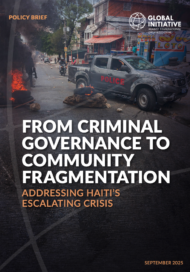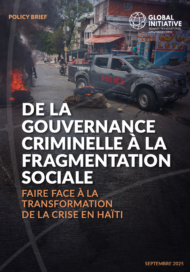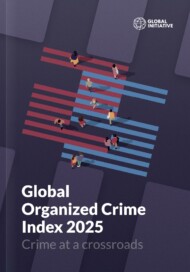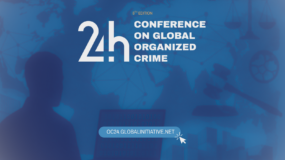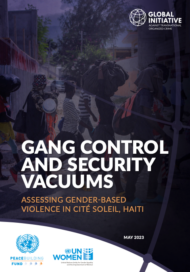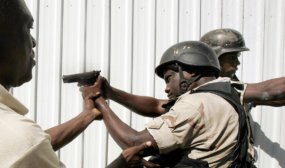Posted on 18 Sep 2025
Haiti is undergoing a profound transformation of its crisis, marked by the consolidation of criminal governance, violent territorial fragmentation, and the erosion of state authority. This policy brief examines developments in the country during the second quarter of 2025.
The report finds that the most powerful criminal groups now function like armed militias, controlling vast swathes of the country. In Port-au-Prince, gangs control nearly 90% of the capital and are extending their reach into the Centre and Artibonite regions, pushing towards the Dominican border and Haiti’s northern regions. Their governance model is based on territorial control, extortion, and growing political influence. Extortion alone generates between US$60 million and US$75 million annually from container transport.
At the same time, Haiti faces alarming humanitarian indicators. Between January and May 2025, at least 4,026 people were killed, a 24% increase compared to 2024. By July, more than 1.3 million people –over 11% of the national population, half of them minors– were displaced. Nearly 700,000 children live without secure housing, and more than 1,600 schools closed in the first half of 2025 due to violence, leaving 243,000 children without access to education.
Civilian responses have also transformed. Vigilante brigades, initially formed for community protection, now play a central role in Haiti’s security landscape. While indispensable to local defence and often collaborating with the police, they also blur the lines between state and non-state actors. Some brigades pursue territorial and political expansion, raising concerns that they could evolve into criminal groups. Cycles of revenge and intra-communal violence increasingly target civilians, eroding social cohesion.
The state security sector itself has fragmented further. Rivalries, lack of coordination, privatization, and militarization have weakened institutions. While the government has created a task force, recruited a private military company, and expanded militarized responses such as drone strikes, these remain insufficient. The Kenyan-led Multinational Security Support (MSS) mission continues to face structural and political obstacles, with weak integration into Haiti’s security framework.
Politically, the Transitional Presidential Council (TPC) is paralyzed. Despite its mandate to restore security, reform institutions, and prepare elections, it has failed to deliver. With elections unlikely in November 2025 and no plan for the post-mandate period starting in February 2026, a dangerous political vacuum risks deepening. Meanwhile, international engagement remains stalled, with ambitious plans but no consensus or implementation.
This policy brief highlights urgent priorities: reinforcing Haitian-led governance and justice initiatives, restoring coherence among transitional institutions, dismantling the networks sustaining the criminal economy, and preparing for a credible transition beyond February 2026.
This report is part of the GI-TOC’s Observatory of Violence and Resilience in Haiti, providing research, analysis, and support to local and international stakeholders.
